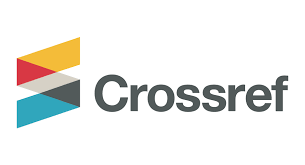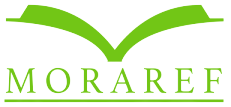Pembaruan Hukum Perluasan Kewenangan DKPP dalam Penyelengaraan Pemilu di Indonesia
 Abstract views: 252
,
Abstract views: 252
,
 PDF downloads: 110
PDF downloads: 110
Abstract
Jurnal ini membahas tentang “Pembaruan Hukum Kewenangan DKPP Dalam Penyelenggaraan Pemilu Di Indonesia”. DKPP merupakan salah satu Lembaga penyelenggara Pemilu. Perihal pelaksanaan kewenangan yang dimiliki oleh DKPP masih terjadi problem. Hal ini disebabkan tidak adanya parameter yang cukup jelas untuk dapat digunakan oleh DKPP dalam menangani pelanggaran kode etik penyelenggara Pemilu. Pada dasarnya penanganan yang terjadi di DKPP berdasarkan keadilan restoratif. Di samping itu, seharusnya putusan DKPP bersifat rekomendasi dan tidak bersifat inal and binding. Karena menimbulkan efek psikologis bagi jajaran KPU serta Bawaslu berupa ketakutan akan sanksi pemecatan atau pemberhentian sementara, serta berpotensi menimbulkan polemik Hukum yang berkepanjangan. Dalam penelitian ini menggunakan penelitian Hukum normatif dengan pendekatan statute approach yaitu pendekatan perundang-undangan. Hipotesa singkat dari jurnal ini yaitu DKPP seharusnya diberikan kewenangan yang lebih proporsional dan tidak ada keterkaitan dengan institusi lain sehingga terwujudnya Pemilu yang jujur dan adil.
Downloads
References
Mawardi Irvan. 2014. Dinamika Sengketa Administrasi di Pemilukada, Yogyakarta: Rangkang Education.
Marlina. 2009. Peradilan Pidana Anak di Indonesia: Pengembangan Konsep Diversi dan Restorative of Justice, Bandung:Refi ka Aditama.
Mubarok Zaki. 2013. Kedudukan DKPP dalam Sistem Ketatanegaraan Indonesia. Lampung:Pasca Sarjana Ilmu Hukum Universitas Lampung.
Muh. Salman Darwis, 2015. Implementasi Kewenangan DKPP Pasca Putusan Mahkamah Konstitusi Nomor 115/PHPU.D-XI/2013, Volume 12 Jurnal Konstitusi.
Syaefudin. 2018. Kewenangan Dewan Kehormatan Penyelenggara Pemilu ( DKPP ) Dalam Menegakkan Kode Etik Pelanggaran Pemilihan Umum, Magister Hukum Universitas Semarang, Jurnal USM Law Review, Vol 1 No 2.
Putusan MK Nomor 11/PUU-VIII/2010
Undang-Undang Nomor 7 Tahun 2017 tentang Penyelenggara Pemilihan Umum
Publishing your paper with As-Shahifah : Journal of Constitutional Law and Governance means that the author or authors retain the copyright in the paper. As-Shahifah granted an exclusive non commercial reuse license by the author(s), but the author(s) are able to put the paper onto a website, distribute it to colleagues, give it to students, use it in your thesis etc, so long as the use is not directed at commercial advantage or toward private monetary gain. The author(s) can reuse the figures and tables and other information contained in their paper published by As-Shahifah in future papers or work without having to ask anyone for permission, provided that the figures, tables or other information that is included in the new paper or work properly references the published paper as the source of the figures, tables or other information, and the new paper or work is not direct at private monetary gain or commercial advantage.
As-Shahifah journal provides immediate open access to its content on the principle that making research freely available to the public supports a greater global exchange of knowledge. This journal is licensed under a Creative Commons Attribution-ShareAlike 4.0.This license lets others remix, tweak, and build upon your work non-commercially, and although their new works must also acknowledge & be non-commercial, they don’t have to license their derivative works on the same terms.
As-Shahifah journal Open Access articles are distributed under this Creative Commons Attribution-ShareAlike 4.0 International License (CC BY-SA). Articles can be read and shared for noncommercial purposes under the following conditions:
- BY: Attribution must be given to the original source (Attribution)
- SA: If you remix, transform, or build upon the material, you must distribute your contributions under the same license as the original.










